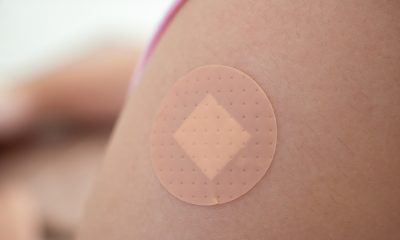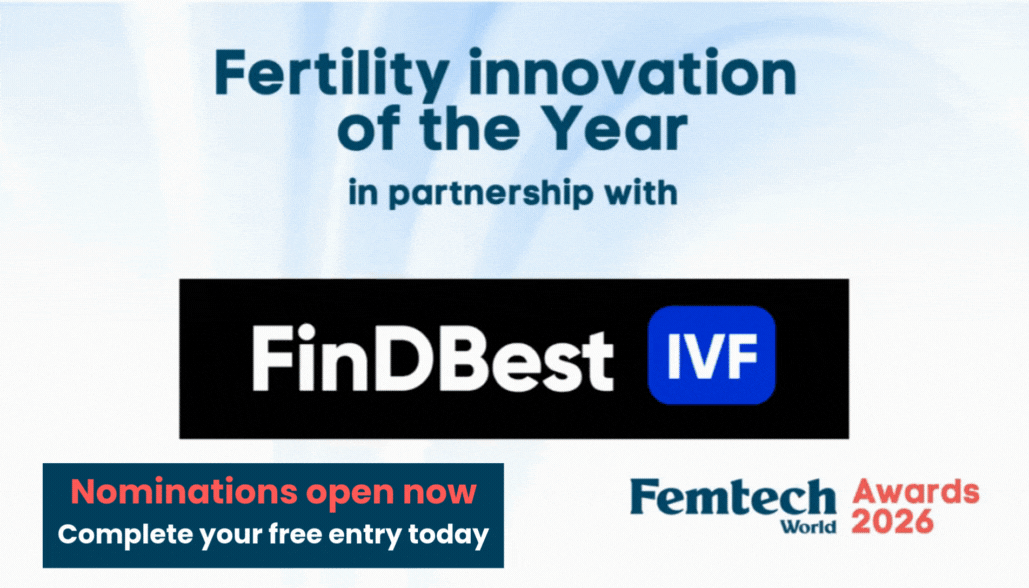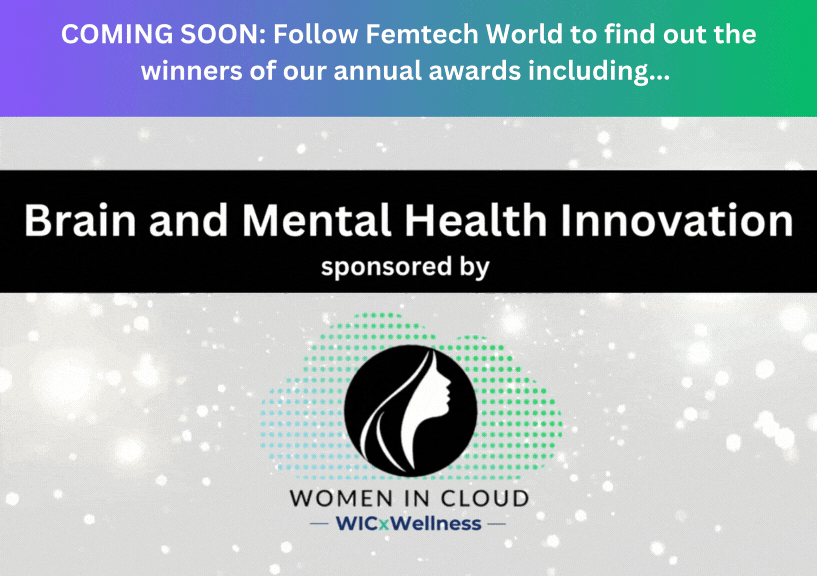Insight
Ancient Chinese herbal remedy could improve fertility

News
‘Alarming’ rise in HIV diagnosis rates needs attention, gov says

Alarming increases in HIV diagnoses among women require urgent government focus, with new cases rising 33 per cent between 2019 and 2024, MPs have warned.
Sexual health services are “extremely stretched” with funding “pared to the bone”, threatening the UK’s ability to meet the United Nations AIDS 2030 zero transmission target, according to the Women and Equalities Committee report.
While new diagnoses fell among gay and bisexual men, significant disparities emerged in other groups.
New diagnoses in 2024 compared with 2019 were 35 per cent lower in men exposed through sex with men (1,238 to 810), but 26 per cent higher in females exposed through sex with men (596 to 749).
Overall, new diagnoses decreased 14 per cent in men but increased 33 per cent in females.
Black African and Asian populations saw increases of 80 per cent and 40 per cent respectively, while diagnoses among people of white ethnicity decreased 40 per cent.
The report warned the interim target of an 80 per cent reduction by 2025 is unlikely to be met.
Sarah Owen, chair of the Women and Equalities Committee and Labour MP, said: “With sexual health services stretched as they are, the Government will struggle to meet its adopted United Nations AIDS target of zero HIV transmissions by 2030.
“The forthcoming HIV action plan needs to include additional funding to that already earmarked if sexual health services are to be able to tackle HIV transmission effectively.
“Increases in HIV diagnoses among women are alarming and the action plan must include steps to address these concerns.
“Given the high cost to the NHS of late diagnosis, a fully resourced opt-out community testing programme in areas of high prevalence would represent a significant long-term saving.
“It should be introduced as soon as possible.”
MPs recommended expanding emergency department opt-out testing programmes to GP practices, abortion clinics, women’s health hubs, cervical screening centres and sexual health clinics.
Such expansion should include locally tailored campaigns targeting specific groups.
Just two thirds of heterosexual men and women are having their PrEP needs identified at sexual health services, with even fewer having them met.
PrEP is antiretroviral medication given to HIV-negative people to reduce infection risk.
The committee called for national digital access to PrEP to address delays in accessing sexual health services.
PrEP should also be available through community pharmacies and primary care, with increased walk-in appointments.
Ministers should enable nurses and health advisers to initiate PrEP prescriptions and provide targeted training to reduce missed opportunities, particularly in Black African communities.
Additional sexual health funding beyond that already earmarked for the public health grant will be needed to support increased testing.
Given the high NHS costs of late diagnosis, upstream community testing funding would deliver significant long-term savings, the report stated.
The report also highlighted concerning drops in testing among young people alongside decreased contraception use.
MPs called for public awareness campaigns on testing and contraception specifically targeting this age group.
Opt-out testing expansion to further emergency departments should automatically include hepatitis B and C tests.
Metro mayors should consider whether shared postal testing services across combined authorities might improve access and value compared with current individual local authority approaches.
Owen added: “Meeting the 2030 target requires focus on testing and improved access to PrEP, yet we know that people are struggling to access it, particularly if they live outside of major cities.
“As the Committee’s new report on tackling HIV transmission recommends, the Government should roll out digital access to HIV pre-exposure prophylaxis (PrEP) antiretroviral medication nationally to help address unacceptable delays and challenges in accessing sexual health services and prescriptions.”
“The roll out of injectable PrEP has the potential to be a huge step forwards in the battle against HIV.
“We urge it to be made available to vulnerable people, particularly women who may face barriers in accessing daily tablets.”
Wellness
How sophrology empowers women to navigate cognitive overload

By Dominique Antiglio, Sophrologist, Wellness Entrepreneur, and Founder of BeSophro
The pace of modern life, especially for women leading in tech and innovation, can feel relentless.
We’re constantly processing, planning, problem-solving, and pushing forward. Yet behind every strategic decision and creative breakthrough often lies a hidden burden: cognitive overload.
This invisible mental strain – the accumulation of tasks, decisions, and emotional responsibilities – is something women frequently carry more heavily.
It’s the unseen work of managing details, anticipating needs, and holding it all together. And when you add the demands of entrepreneurship and leadership, the result is often a sense of chronic overwhelm that no amount of productivity hacks can fix.
I’ve seen this pattern again and again in my work as a Sophrologist. Brilliant, driven women, deeply capable and accomplished, yet quietly running on empty.
What they need isn’t another tool to optimise their schedule; it’s a way to reclaim their mental space. That’s where Sophrology comes in.
A Modern Method for a Modern Mind
Sophrology is a structured, science-informed mind-body method that combines relaxation, breathing, gentle movement, visualisation, and meditation.
Created in the 1960s by neuropsychiatrist Alfonso Caycedo – who I was fortunate to train under – it has long been used across Europe to manage stress, improve focus, support sleep, and build resilience, often prescribed alongside traditional medical solutions and reimbursed by health insurance.
Unlike traditional meditation, Sophrology is active and practical.
It doesn’t ask you to switch off your thoughts or retreat from the world, but rather to cultivate presence and balance within it.
By using simple physical and mental exercises, you learn to regulate your nervous system, release tension, and quiet the constant internal dialogue that feeds stress and distraction.
For women in fast-moving, cognitively demanding industries like tech, Sophrology offers something rare: a sustainable mental toolkit for staying centred, creative, and clear-headed amid the noise.
Releasing the Mental Load

Dominique Antiglio
Sophrology helps calm the mind and release physical and psychological tension. Through conscious breathing and guided awareness, it clears the mental clutter that builds up from multitasking and decision fatigue.
A few minutes of practice can shift your state profoundly.
By anchoring your attention in the body – feeling your breath, relaxing your shoulders, softening the jaw – you interrupt the stress response and restore a sense of clarity.
Visualisation then helps you to let go of unnecessary worries, reconnect with priorities, and approach challenges with renewed focus.
When practiced regularly, this process builds mental resilience – not by forcing yourself to do more, but by learning how to reset efficiently and recover quickly.
Self-Awareness as a Strategic Advantage
In entrepreneurship, self-awareness is often framed as emotional intelligence or leadership maturity.
In Sophrology, it’s also physiological, tuning into the body’s signals before they escalate into burnout.
Through practice, you notice signs of overload: tension in the neck, shallow breathing, fatigue, restlessness, or difficulty concentrating.
These are not inconveniences to be pushed through, they are data points. Information from your body that something needs to shift.
By responding early, taking a few moments to breathe deeply, stretch, or visualise calm, you can prevent stress from becoming chronic.
This kind of embodied self-awareness is a powerful leadership asset.
It supports better decision-making, emotional regulation, and ultimately, more sustainable performance.
From Overwhelm to Empowerment
One of the most profound effects of Sophrology is its ability to reframe mindset.
It teaches self-compassion – the recognition that your worth is not defined by productivity or output.
By reconnecting with your personal values and intuition, you gain clarity about where to focus your energy.
You start saying yes only to what aligns with your goals and no to what doesn’t serve your wellbeing or mission. You delegate more easily, prioritise more intelligently, and stop chasing the illusion of doing it all.
This is especially transformative for women in leadership, where the pressure to perform and prove oneself remains high.
Sophrology empowers you to lead from a place of grounded confidence – to remember that you are not your to-do list.
Real, Measurable Benefits
Over time, consistently practicing the modalities of Sophrology brings tangible, science-backed benefits that directly support the entrepreneurial mindset:
- Improved sleep quality: Restorative sleep fuels sharper thinking and better emotional regulation.
- Enhanced focus and concentration: A calm mind processes complex information more effectively.
- Greater emotional balance: You respond to challenges rather than react to them.
- Sustained energy: By reducing internal tension, energy is used more efficiently.
- Expanded creativity and clarity: With less noise in the mind, insights arise more naturally.
These benefits don’t just improve wellbeing — they enhance leadership capacity.
A centred, self-aware founder or executive is not only more productive, but also more visionary and empathetic.
Reclaiming Your Inner Bandwidth
In tech, we talk often about bandwidth; the capacity of systems to handle information efficiently. But human bandwidth matters too.
Without space to think, reflect, and rest, innovation stalls and burnout takes over.
Sophrology helps women reclaim that inner bandwidth, decluttering the mind, restoring focus, and building the resilience needed to thrive in high-pressure environments.
It’s not about doing less; it’s about showing up differently – grounded, present, and fully yourself.
Because the truth is, when you reclaim your mental space, you don’t just feel better – you lead better.
Try It Yourself: A 3-Minute Sophrology Reset
If you’re feeling mentally overloaded, try this short exercise to calm your mind and refocus your energy:
- Find a comfortable position sitting. Close your eyes.
- Scan your body from head to toe. Notice the presence of your body and your breath. Any areas of tension: Your neck? Shoulders? As you exhale, encourage releasing tightness from those areas.
- After the body scan, stand up with your arms alongside your body and clench your fists. Now inhale, hold your breath and move your shoulders up towards your ears and back down a few times until you need to exhale. Exhale through your mouth and release your fingers, hands, arms and shoulders fully, visualising the mental load leaving your body. Repeat twice, observing your sensations.
- Now sit back and relax in your chair and take a moment to simply feel the sensations in your body: warmth, relaxation, or anything that shows up – even tension or worries. Simply make a mental note of it without judgement.
- Before opening your eyes, take a moment to welcome a positive word of your choice – such as “calm”, “confidence”, “joy” or “energy”.
- Open your eyes and notice how you feel; lighter, more centred, and ready to continue with renewed focus.
About the Author
Dominique Antiglio is a world-leading sophrologist, best-selling author, and founder of BeSophro, an online sophrology platform making this transformative method accessible to English-speaking audiences worldwide.
Her clients include Silicon Valley Founders, top athletes, and leading corporate organisations.
Insight
Women’s Health 2.0: The Era of Scale

After two years of uniting the global women’s health ecosystem to drive impact and investment, Women’s Health Week USA has announced the central theme for its 2026 summit: Women’s Health 2.0 — The Era of Scale.
Returning to New York on May 13–14, 2026, the event signals a pivotal moment for the sector. Innovators are no longer just building; they’re scaling.
Investors are increasing activity. Corporates are moving from exploration to strategic commitment. And across the industry, momentum is accelerating at a pace not seen before.
A sector entering its scale phase
This year’s theme reflects a maturing market, one where clinical validation, commercial models, reimbursement pathways and distribution strategies are now centre-stage.
Women’s Health Week USA 2026 will spotlight the organisations translating innovation into real-world adoption.
From the key program themes have just been released this week, attendees can expect:
- A sharper focus on commercialisation and growth, including reimbursement, regulatory clarity and distribution models.
- Deeper investor engagement, with expanded opportunities for targeted 1:1 meetings.
- Two expanded Innovation Showcases, highlighting the next generation of breakthrough founders driving impact at scale.
- A more global attendee base, bringing together more than 600 leaders spanning innovators, investors, corporates, and policy makers.
- New session formats designed to maximise meaningful connection and deal-making.
These developments reflect a broader shift across femtech and women’s health: the move from early innovation to adoption, acceleration and scale.
Shaping the future of women’s health
As one of the sector’s largest global gatherings, Women’s Health Week USA continues its mission to facilitate strategic partnerships that deliver both commercial growth and improved health outcomes for women worldwide.
Over the coming weeks, the organisation will release early speaker announcements, agenda themes and opportunities for innovators, investors and corporates to take part in this year’s programme.
Don’t miss out – register your interest here to receive all the updates as they’re released.
-

 Fertility4 weeks ago
Fertility4 weeks agoAI embryo selection tool wins European approval
-

 Wellness2 weeks ago
Wellness2 weeks agoOpinion: Not ‘just stress’ – How hormonal changes affect women’s brain function
-

 News4 weeks ago
News4 weeks agoTestosterone patch shows promise for menopausal women
-

 News3 weeks ago
News3 weeks agoTop 7 drug-free solutions for managing PMS and PMDD in in 2025
-

 Features4 weeks ago
Features4 weeks agoFrom SEO to GEO: How women’s health brands can get found in the age of AI
-

 Wellness4 weeks ago
Wellness4 weeks agoFDA approves new menopause drug to treat hot flashes and night sweats
-

 News4 weeks ago
News4 weeks agoSpain faces protests over mammogram scandal
-

 Wellness4 weeks ago
Wellness4 weeks agoMost midlife women with menopause symptoms don’t seek care, research finds





























